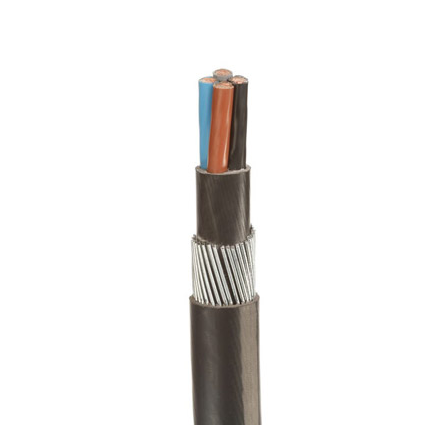Understanding the Difference Between SWA and Armoured Cable
In the world of electrical installations and wiring, there are various types of cables that serve different purposes. Two commonly used cables are SWA (Steel Wire Armoured) cable and Armoured cable. While they may seem similar at first glance, there are distinct differences between the two. In this article, we will explore the dissimilarities and shed light on the unique features of SWA and Armoured cables.
What is SWA Cable?
SWA cable, also known as Steel Wire Armoured cable, is a type of power cable designed for outdoor and underground use. It consists of multiple layers that provide enhanced protection against mechanical damage, moisture, and other environmental factors. The core of an SWA cable is made of copper or aluminum conductors, which are insulated to prevent electrical leakage.
The distinguishing feature of SWA cable is the steel wire armor that surrounds the core. This armor provides excellent strength and durability, making SWA cable suitable for applications where the cable needs to withstand external pressure, such as buried installations or areas with heavy machinery.
Understanding Armoured Cable
Armoured cable is another type of power cable that offers robust protection for electrical installations. It is constructed similarly to SWA cable, with a core made of copper or aluminum conductors that are insulated. However, the key difference lies in the armor.
Unlike SWA cable, Armoured cable features a layer of aluminum or steel tape armor, instead of steel wire armor. This tape armor provides reliable protection against physical damage, moisture, and corrosive elements. Armoured cable is commonly used in indoor installations where additional mechanical strength is required, such as in commercial buildings or industrial facilities.

The Key Differences
Now that we have a basic understanding of SWA and Armoured cables, let's delve deeper into the key differences that set them apart:
Armoring Material: The most apparent difference is the material used for armoring. SWA cables feature steel wire armor, while Armoured cables utilize aluminum or steel tape armor.
Mechanical Strength: Both cables offer enhanced mechanical strength compared to standard cables. However, SWA cables with steel wire armor tend to provide higher strength, making them suitable for more demanding applications.
Flexibility: SWA cables, due to their steel wire armor, are less flexible compared to Armoured cables with tape armor. This flexibility can be a determining factor when choosing the appropriate cable for installations that require maneuverability.
Installation Environments: SWA cables excel in outdoor and underground installations, as they are designed to withstand harsh conditions. On the other hand, Armoured cables are primarily used for indoor installations, where they provide reliable protection against physical damage.
Application Scope: SWA cables are commonly employed in heavy-duty applications such as power distribution networks, industrial plants, and large-scale construction projects. Armoured cables, with their superior mechanical strength, are well-suited for commercial buildings, residential complexes, and smaller-scale installations.
Making an Informed Choice
When it comes to selecting the right cable for your specific application, it is crucial to consider the factors that differentiate SWA and Armoured cables. Here are a few considerations to help you make an informed choice:
Environmental Factors: Assess the installation environment for potential hazards such as moisture, extreme temperatures, or chemical exposure. SWA cables offer better resistance to these elements, making them ideal for outdoor or underground installations.
Mechanical Requirements: Evaluate the mechanical stress the cable might encounter during its lifetime. SWA cables, with their robust steel wire armor, are better equipped to withstand heavy machinery or accidental impact.
Flexibility Needs: Determine if the cable needs to be highly flexible or if a sturdier construction is more important. Armoured cables, with their tape armor, offer increased flexibility, making them suitable for installations that require bending or maneuvering.
Project Scale: Consider the scale of your project and the specific industry requirements. SWA cables are commonly used in large-scale applications, while Armoured cables are preferred for smaller-scale installations.
Conclusion
In summary, SWA and Armoured cables serve distinct purposes in the realm of electrical installations. Ruitian SWA cables, with their steel wire armor, are designed for outdoor and underground use, providing excellent mechanical strength and protection. On the other hand, Armoured cables feature tape armor, making them suitable for indoor applications where flexibility is essential.
By understanding the differences between SWA and Armoured cables, you can make an informed decision when selecting the appropriate cable for your specific needs. Remember to consider the environmental factors, mechanical requirements, flexibility needs, and project scale to ensure a successful and reliable electrical installation.



